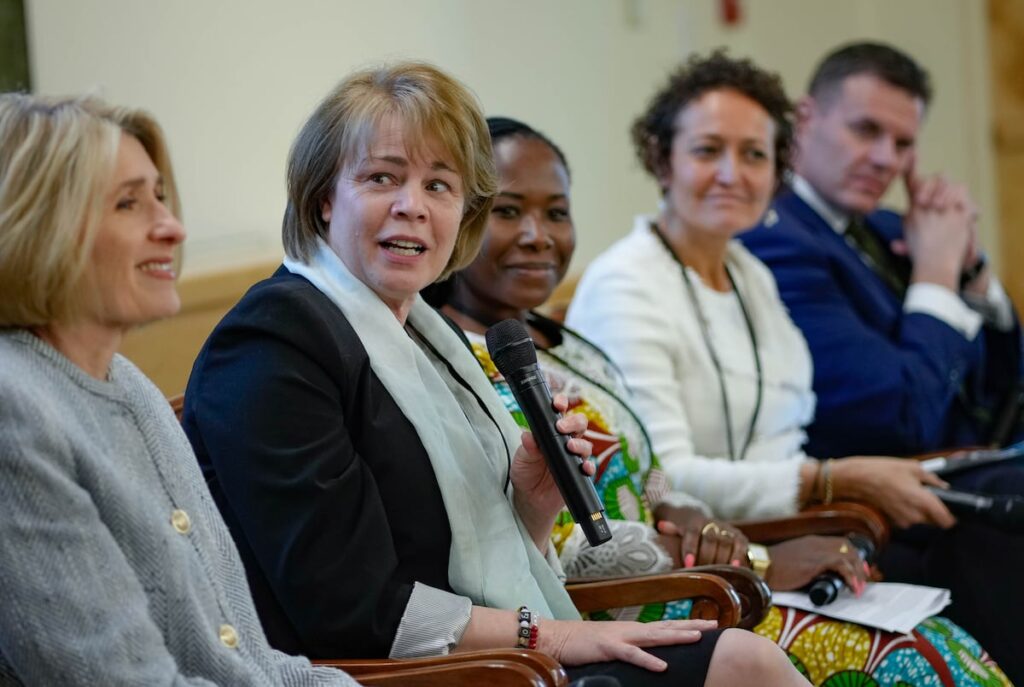Understanding Humanitarian Impact: Insights from Sharon Eubank
Sharon Eubank, the Director of Humanitarian Services for The Church of Jesus Christ of Latter-day Saints, has been at the forefront of humanitarian relief since assuming the role in 2011. Under her leadership, the department’s budget has increased fivefold, enabling the church to engage in numerous relief projects across the globe. Eubank’s forthcoming book, “Doing Small Things With Great Love: How Everyday Humanitarians Are Changing the World,” scheduled for release on September 16, further explores the dynamics of effective humanitarian efforts.
The Evolution of Humanitarian Services
Humanitarian Services initiated in 1985, initially responding to the Ethiopian famine with a small operation focused on implementing ideas with limited resources. Eubank, who began her journey with the organization in 1998, highlights how the organization has transitioned to a more decentralized model. With 24 regional offices now handling a significant portion of the work, headquarters focuses on providing resources and establishing best practices.
Eubank emphasizes the importance of evaluative work, fostering connections between local governments and the church’s humanitarian initiatives to discern effective strategies amidst ever-changing circumstances.
Rethinking Cash Donations
Traditionally, many humanitarian workers hesitated to give cash, fearing it may contribute to corruption. However, recent findings have shown that most individuals make thoughtful decisions when given financial assistance. Eubank notes that when cash is provided without dependency issues, 80% of recipients use it wisely. This shift underscores the importance of restoring choice to individuals affected by disasters, enabling them to make decisions essential for their well-being.
Listening to Community Needs
In her book, Eubank emphasizes the necessity of listening to communities when assessing their needs. A poignant example shared involves a UNICEF project in Central America where the community prioritized soccer field lights over a proposed health clinic. Their insistence on creating a safe space for children to play redefined community engagement and cohesion.
This illustrates a vital lesson for humanitarian efforts: it’s crucial to inquire directly about what communities want rather than assuming the needs based on external perspectives.
The Importance of Local Insight
Cultural assumptions often lead to misguided humanitarian practices. Eubank asserts that a prevalent mindset in the developed West is that wealth and education equate to wisdom that can be imparted to less advantaged communities. However, genuine humanitarian work arises from understanding local contexts and engaging deeply with communities to uncover root causes of issues.
She reflects on her experiences in Southeast Asia post-2004 tsunami, where local responders were able to provide immediate support by engaging directly with their communities. This illustrates that the most significant impact can occur within one’s own community, fostering relationships and addressing needs as they arise.
Adapting to Changing Circumstances
In light of decreased government aid and reduced refugee acceptance, the role of individual humanitarian efforts has become increasingly critical. Eubank advocates for personal engagement in humanitarian causes that resonate at an individual level. Recognizing personal interests can lead to actionable change, whether focused on child mortality rates or other pressing social issues.
Recent statistics reveal significant progress in child mortality rates, yet disparities remain, particularly in the U.S. where it ranks 17th among developed nations. By raising awareness and advocating for solutions, the public can play a vital role in addressing these disparities.
Conclusion
The insights from Sharon Eubank highlight the evolving landscape of humanitarian efforts and the importance of genuine community engagement. As discussions on effective aid continue, it remains essential for organizations and individuals alike to foster dialogues that prioritize the voices and needs of those they aim to help. With her experience and newly published book, Eubank serves as a guiding force in redefining what it means to truly support communities in need.
For more information on humanitarian initiatives, explore the role of organizations like UNICEF, which embodies the principles of listening and responding to community priorities. Engage in local efforts to create impactful changes in your community and beyond.
